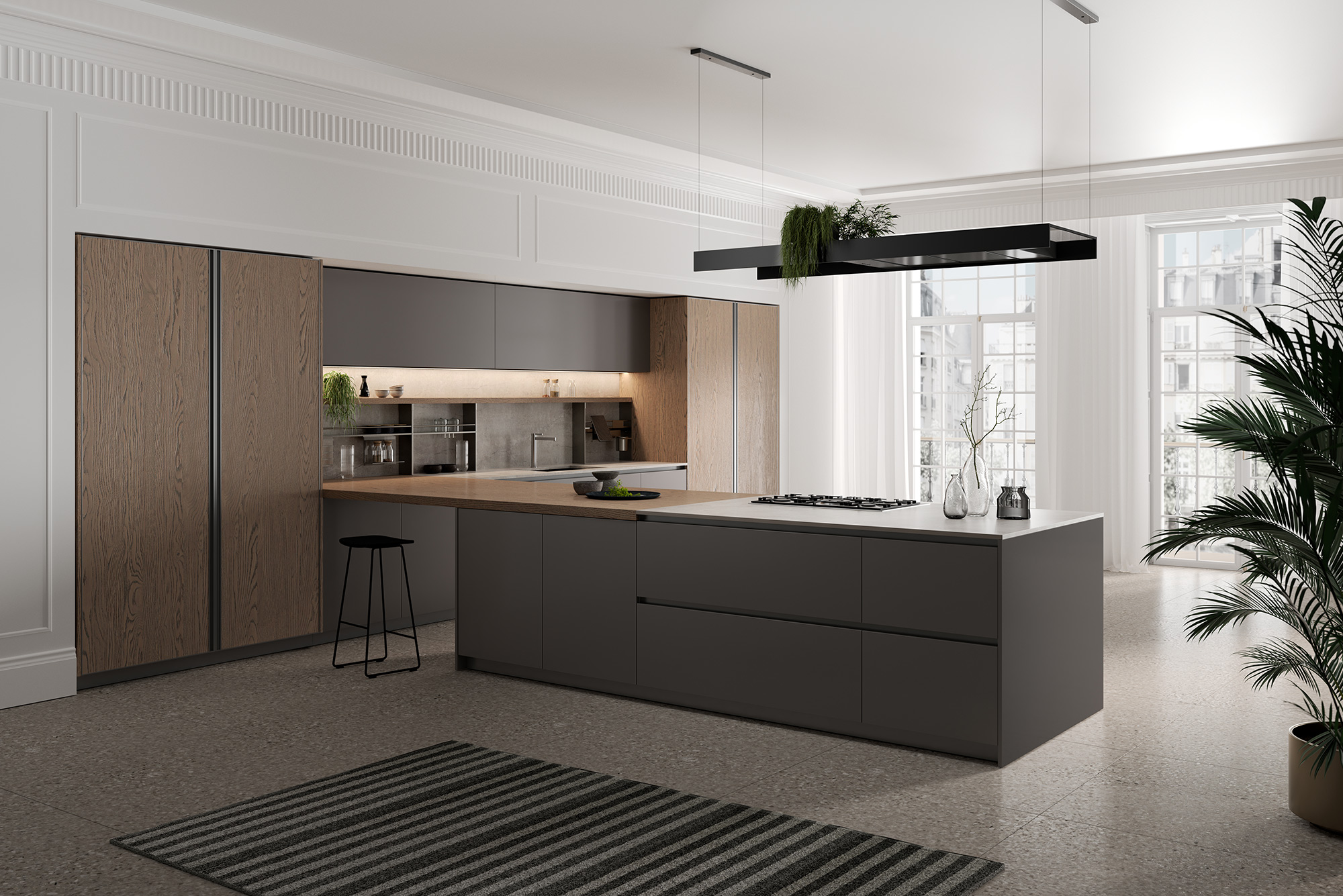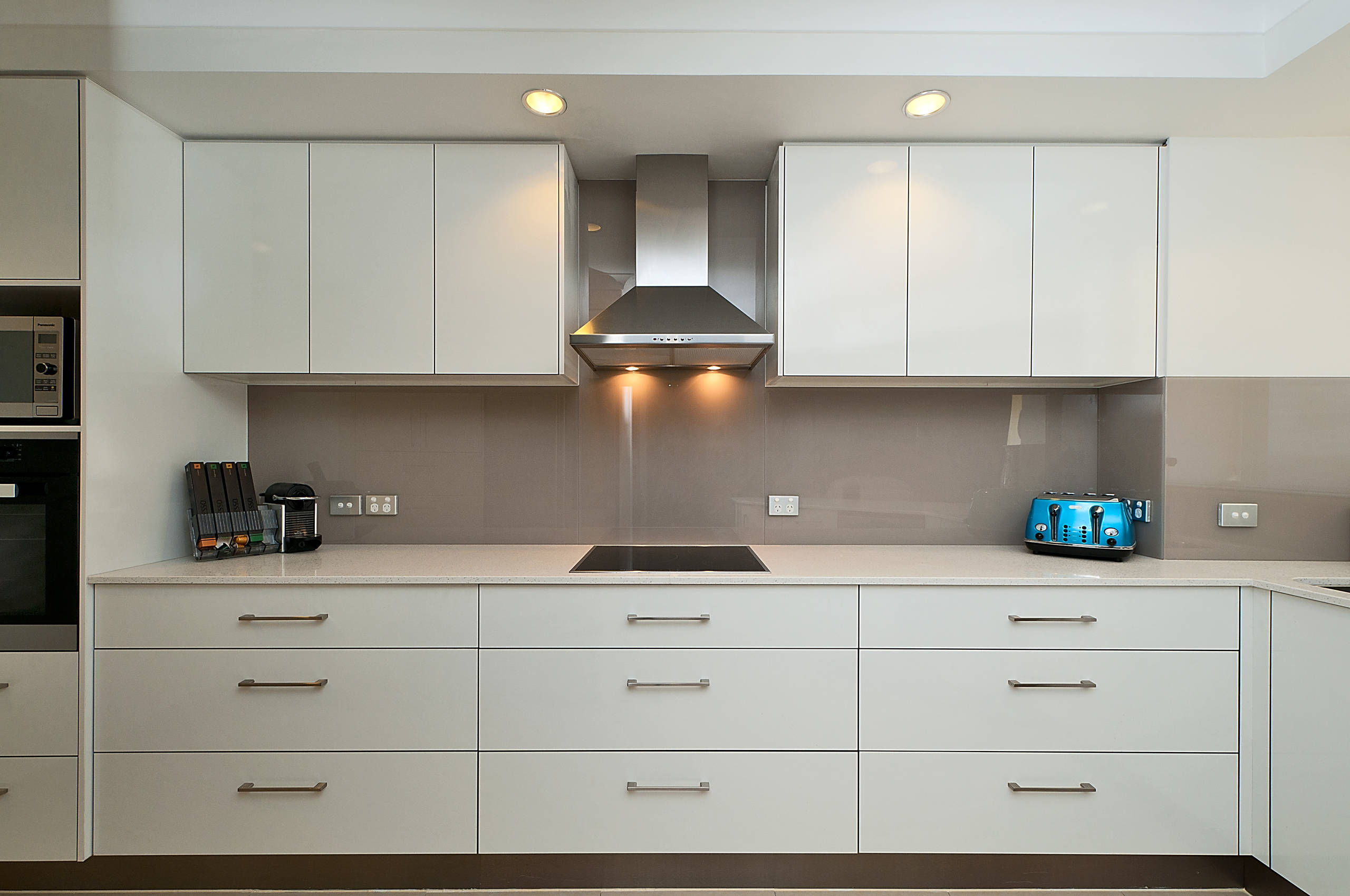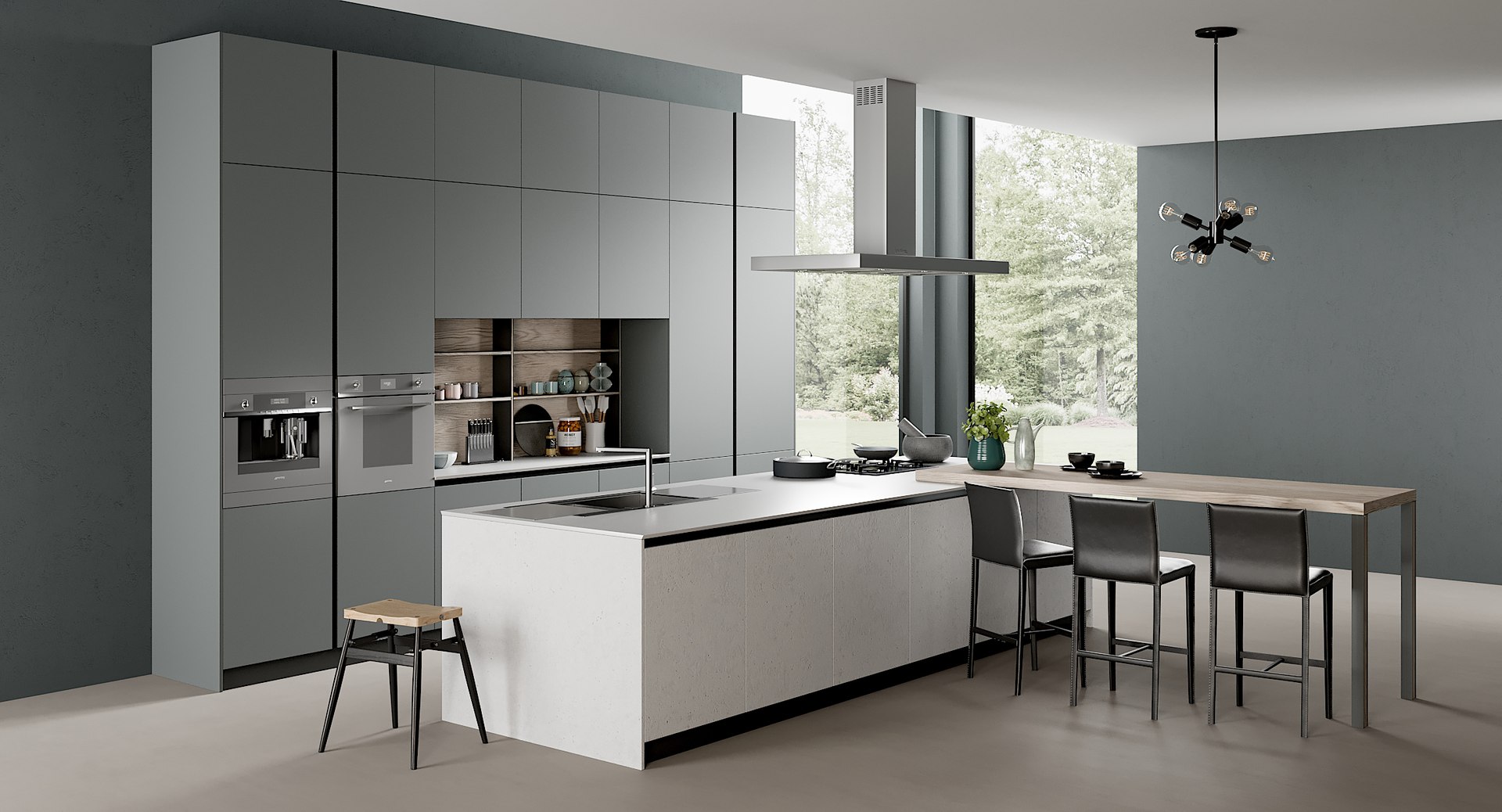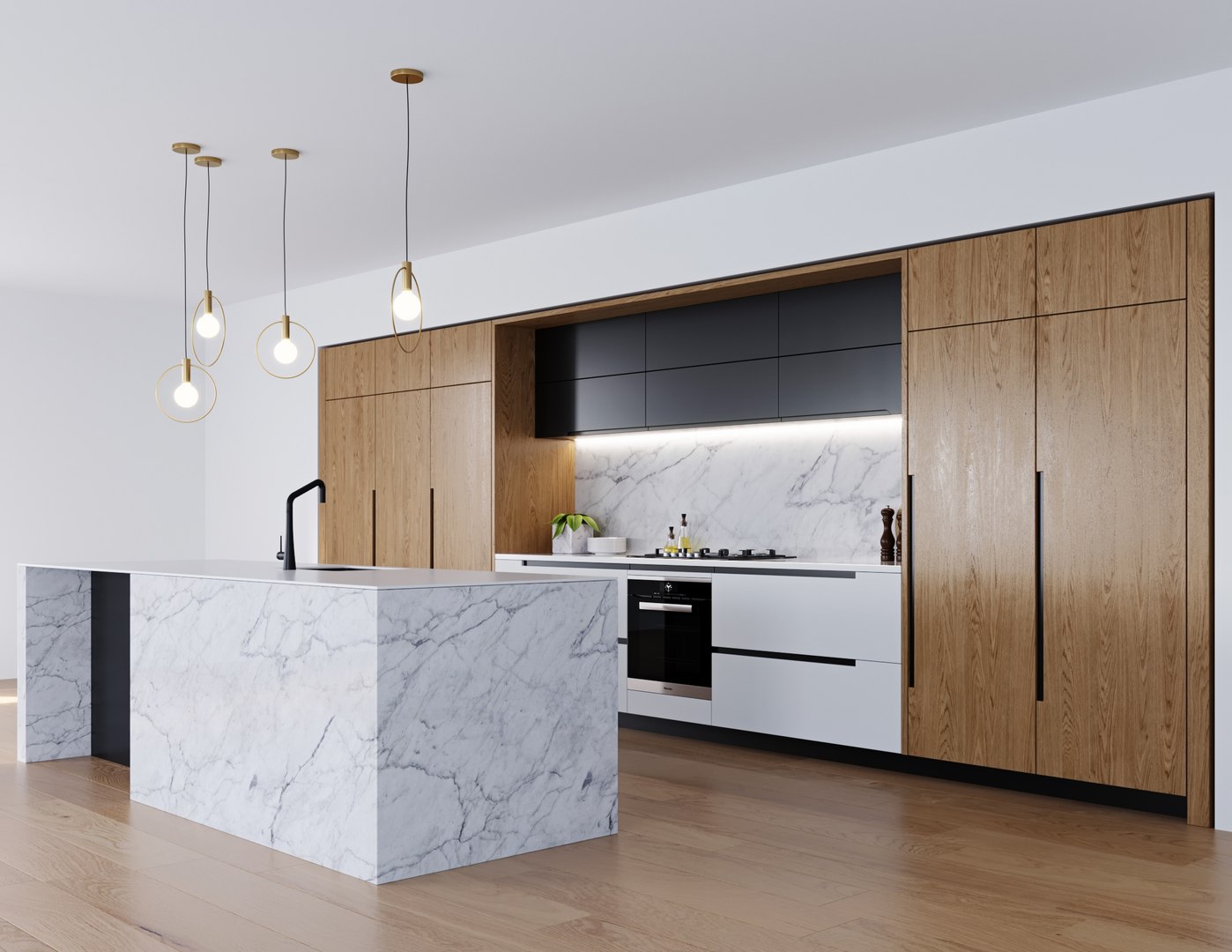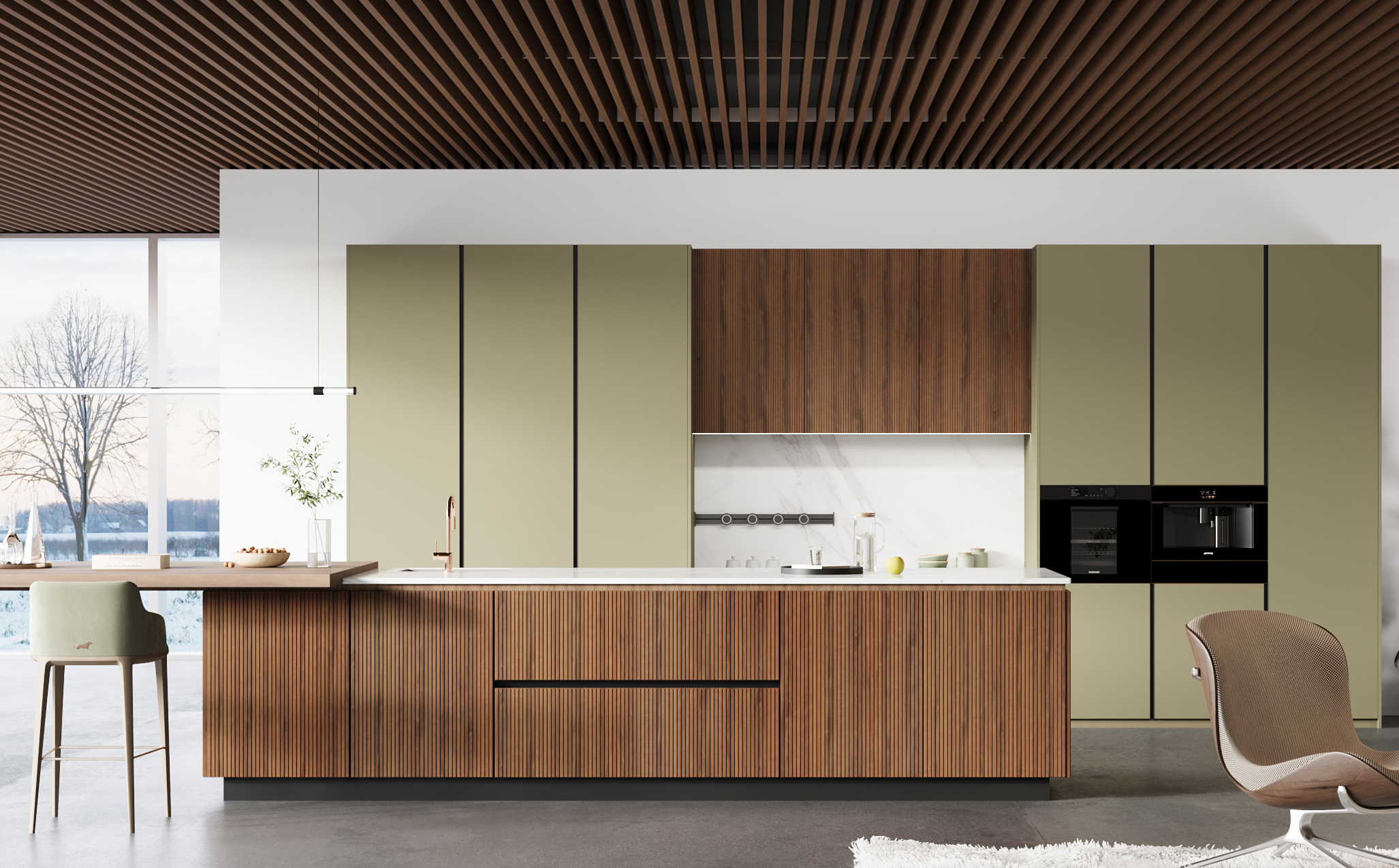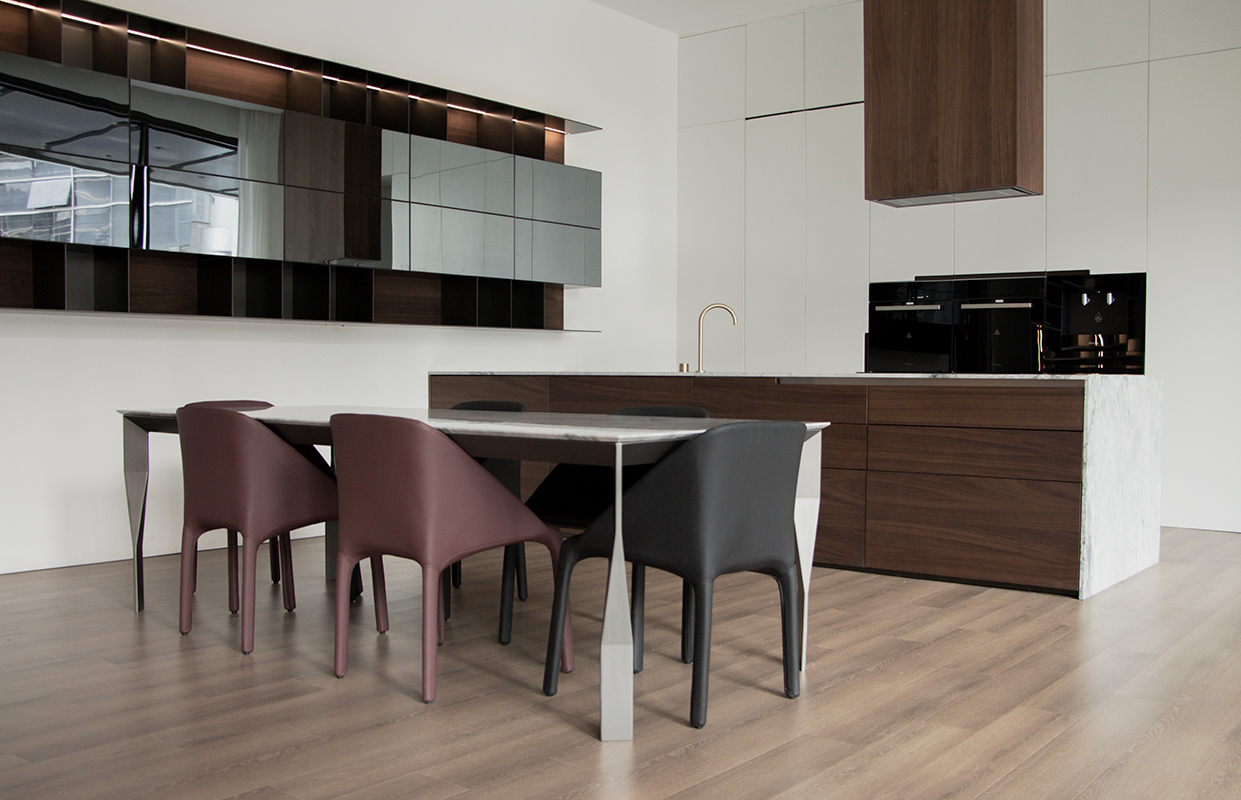When deciding between a custom cabinet vs. modular cabinet, understanding the core differences is essential for any construction or renovation project. This decision significantly affects design flexibility, cost, timeline, and ultimately project success. This article focuses on the benefits of custom cabinets, providing a detailed comparison with modular cabinets to help builders and developers make informed decisions tailored to their project needs.
Modular Cabinets
Definition and Characteristics
Modular cabinets are pre-manufactured units produced in standard sizes and configurations, designed for quick assembly and installation. Typically factory-made with consistent designs and materials, modular cabinets suit projects with straightforward requirements and standardized spaces.
These cabinets enable efficient production and fast delivery, ideal for projects with tight schedules or cost constraints.
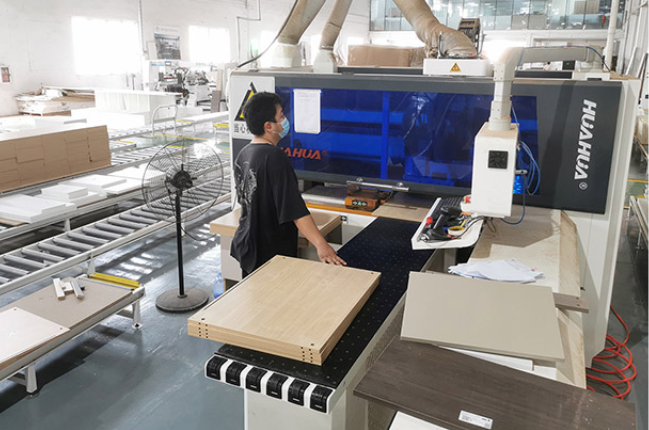
Advantages and Disadvantages
Advantages:
- High production efficiency with shorter lead times to meet urgent project deadlines.
- Cost-effective pricing, fitting budget-conscious projects.
- Consistent quality through standardized factory production.
- Quick and straightforward installation on-site.
Disadvantages:
- Limited design flexibility, not ideal for irregular or complex spaces.
- Predefined sizes may result in suboptimal space utilization.
- Restricted material and style options, limiting customization for upscale designs.
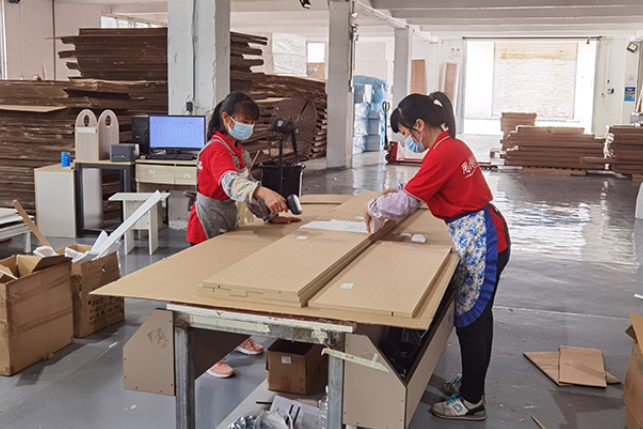
Custom Cabinets
Definition and Characteristics
A custom cabinet is a fully tailored cabinetry solution designed and manufactured to meet exact project specifications and spatial requirements. Offering unparalleled design freedom and craftsmanship, custom cabinets address unique needs and complex layouts.
Custom cabinets provide precise fit, premium materials, and a broad range of functional and aesthetic options, aligning with high-end construction standards.
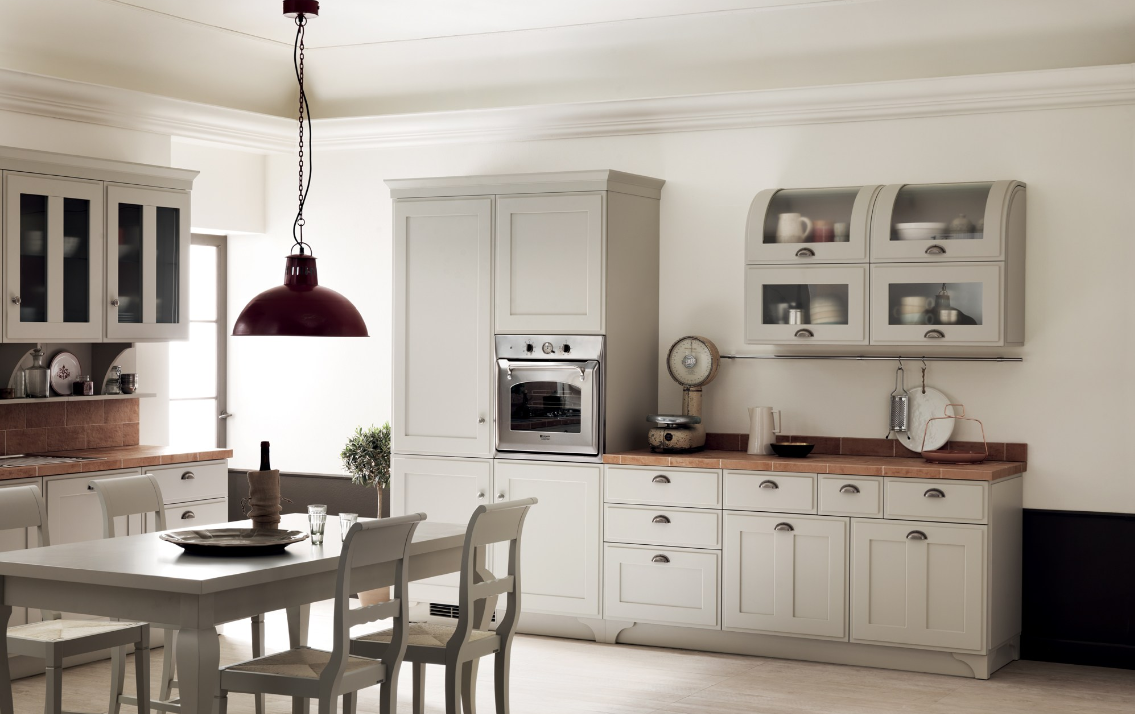
Advantages and Disadvantages
Advantages:
- Exceptional design flexibility to accommodate complex or non-standard spaces.
- Use of premium materials and advanced manufacturing techniques for superior durability and appearance.
- Maximized space utilization, enhancing overall project value and occupant satisfaction.
- Support for personalized features, including smart integration and sustainable design.
Disadvantages:
- Higher initial investment compared to modular options.
- Longer production cycles requiring advanced planning.
- Requires extensive communication and coordination to ensure accuracy.
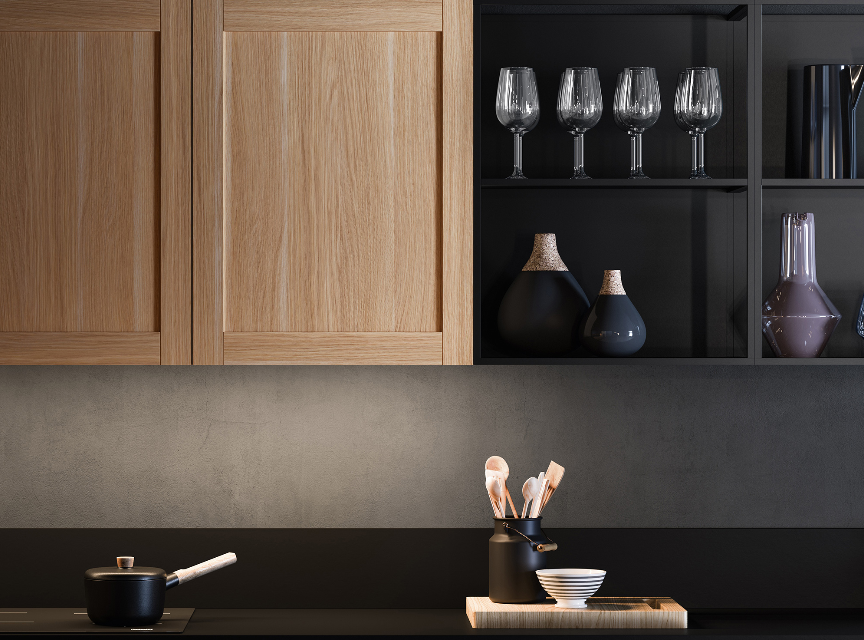
Comparison Table: Modular vs Custom Cabinets
|
Aspect |
Modular Cabinets |
Custom Cabinets |
|
Design Flexibility |
Standardized, suited for regular and simple spaces |
Fully customizable for complex and unique layouts |
|
Cost |
More affordable, suitable for budget-limited projects |
Higher cost, justified by quality and customization |
|
Lead Time |
Shorter production time, ideal for tight schedules |
Longer lead time, necessitates advanced planning |
|
Quality Control |
Consistent quality via standardized processes |
Quality depends on manufacturer and materials |
|
Space Utilization |
May underutilize space, especially in irregular rooms |
Precise fit, maximizing every inch of space |
|
Installation and Maintenance |
Easy installation and low maintenance |
Requires professional installation; maintenance may be higher |
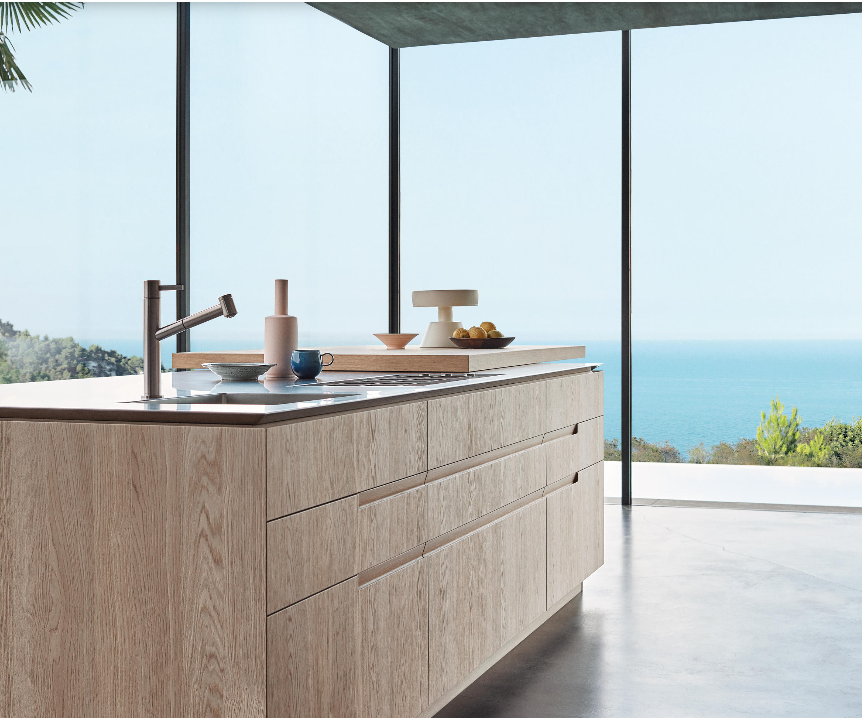
How to Choose Custom Cabinets for Your Project
When weighing the modular vs custom kitchen cabinets pros and cons, builders and developers should consider these key factors:
1.Budget and Return on Investment
Evaluate your overall project budget. While custom cabinets typically require a larger upfront investment, their superior quality and tailored design often deliver greater long-term value.
2.Design Complexity and Space Requirements
Custom cabinets are ideal for projects with complex layouts or unique design demands, ensuring optimal space usage and aesthetic alignment.
3.Delivery Timeline and Project Schedule
For projects with strict deadlines, modular cabinets offer rapid delivery. If timelines allow, custom cabinetry can significantly enhance project quality and user satisfaction.
4.Supplier Capability and After-Sales Support
Partner with suppliers experienced in custom manufacturing who provide reliable quality assurance and post-installation support to guarantee project success.
5.Long-Term Maintenance and Upgrade Plans
Consider the cabinetry's lifecycle and potential future upgrades. Custom cabinets typically offer greater flexibility in maintenance and modernization.

FAQ
Q1: What is the main difference between a custom cabinet and a modular cabinet?
A1: Custom cabinets are fully tailored to specific design and space requirements, offering maximum flexibility, whereas modular cabinets are pre-made units with standard sizes designed for quick installation and cost efficiency.
Q2: What are the key benefits of custom cabinets for large construction projects?
A2: Custom cabinets provide precise space utilization, high-quality materials, and the ability to meet complex design needs, which are essential for delivering premium results in large-scale projects.
Q3: How do I choose custom cabinets that fit my project timeline and budget?
A3: Consider your project's complexity, deadlines, and budget. Custom cabinets require longer lead times and higher investment but offer superior quality. For tight schedules or limited budgets, modular cabinets may be more suitable.
Q4: Can modular cabinets be customized to fit unique spaces?
A4: Modular cabinets offer limited customization and may not perfectly fit irregular or complex spaces. For such cases, custom cabinetry is recommended to achieve optimal fit and design.
Q5: What factors should builders and developers consider when deciding between modular and custom cabinets?
A5: Key factors include budget, design complexity, project timeline, supplier capabilities, and long-term maintenance needs to ensure the cabinetry solution aligns with overall project goals.
Q6: How does working with an experienced supplier impact the quality of custom cabinets?
A6: Partnering with a reputable supplier ensures access to skilled craftsmanship, quality materials, reliable production schedules, and effective after-sales support, all critical for successful custom cabinetry projects.
Conclusion
Making the right choice between a custom cabinet and a modular alternative can define the outcome of your project—impacting not only aesthetics but also functionality and long-term value. Custom cabinetry delivers unmatched flexibility and quality for complex builds, while modular options offer speed and cost efficiency.
For developers and builders who demand both innovation and reliability, AIS stands out as a partner capable of delivering tailored custom cabinet solutions as well as efficient modular products. Leveraging AIS's expertise can ensure your cabinetry perfectly aligns with project goals, timelines, and budgets—helping you achieve outstanding results every time.


